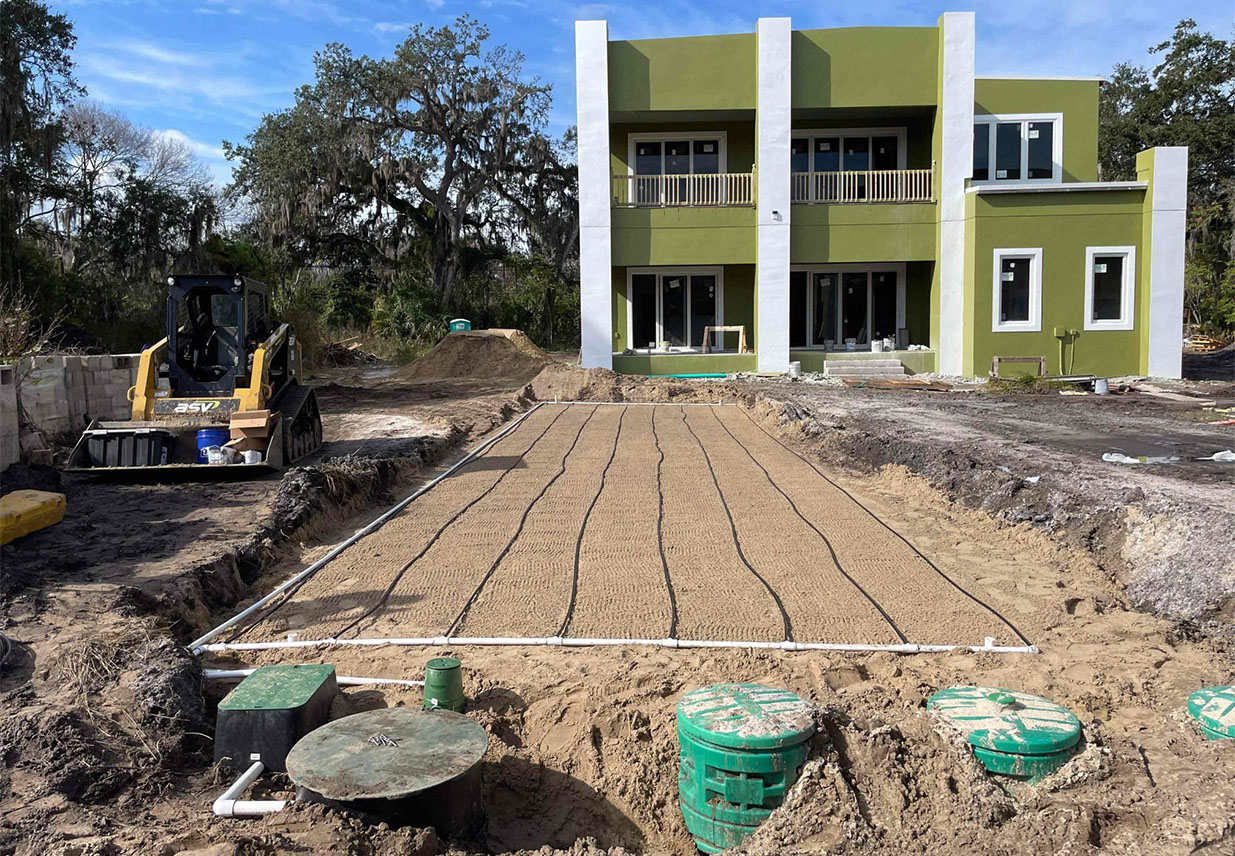Introduction
The world we live in today has a complex relationship with waste management. As urbanization surged, so did the need for efficient systems to manage human waste without polluting our environment. Among the various solutions, septic tanks have emerged as a popular choice, especially in rural areas. But have you ever paused to consider the history and evolution of septic tanks? How did they become an integral part of our sanitation systems? In this article, we'll delve deep into The History and Evolution of Septic Tanks and Their Maintenance, exploring their inception, development through the ages, and essential maintenance practices.
Septic Tank Pumping: A Vital Component
What Is a Septic Tank?
A septic tank is a wastewater treatment system that separates solids from liquids in a self-contained unit. It allows for natural decomposition of organic matter through anaerobic bacteria. The tank typically consists of three main components:
Inlet Pipe: Where wastewater enters. Tank Chamber: Where solids settle at the bottom while scum floats on top. Outlet Pipe: Allows treated effluent to flow out into a drain field.Why Is Septic Tank Pumping Important?
Regular septic tank pumping is crucial to ensure that your system functions effectively. Over time, solids build up within the tank and can lead to blockages or failures if not removed regularly. Neglecting this vital maintenance can result in costly repairs or even health hazards due to sewage overflow.
The History and Evolution of Septic Tanks
Early Waste Management Systems
The concept of waste disposal is not new; ancient civilizations had rudimentary systems for managing human waste. From simple pit toilets used by early humans to aqueducts developed by the Romans, societies have always sought efficient ways to handle sewage.
The Birth of Modern Septic Tanks
The first documented septic tank was designed by John Mouras in France around 1860. Mouras's design included an underground chamber where wastewater could settle and decompose naturally. This revolutionary idea laid the groundwork for modern septic systems.
Septic Tanks in America: A Growing Trend
By the early 20th century, septic tanks began appearing throughout rural America as cities expanded and sanitation became paramount. The introduction of concrete tanks paved the way for more durable designs that could withstand environmental pressures.
Technological Advancements in Septic Systems
From Concrete to Plastic: Innovations Galore
Materials used in septic tank manufacturing have evolved significantly over time. While early models were primarily made from concrete, today's options include plastic and fiberglass—lightweight materials that offer enhanced durability and ease of installation.
Advanced Treatment Options: Aerobic Systems
Modern advancements have also led to aerobic treatment units (ATUs). These systems use oxygen-generating devices to enhance microbial activity, allowing for quicker decomposition and cleaner effluent output compared to traditional septic tanks.
Maintenance Practices for Longevity
Routine Inspections: Catch Problems Early!
Regular inspections are essential for maintaining your septic system's integrity. Look out for signs such as slow drains or foul odors around your property—these may indicate problems that require immediate attention.
Why Choose ACE Septic & Waste?
When it comes to timely inspections and reliable service, companies like ACE Septic & Waste are invaluable partners in maintaining your system's functionality.
Understanding Septic Tank Pumping
How Often Should You Pump Your Septic Tank?
Several factors influence how often you should pump your tank:
- Household size Tank size Volume of wastewater produced
As a general rule, it's wise to pump every 3-5 years but consult with professionals like ACE Septic & Waste for personalized recommendations.
Signs Your Septic Tank Needs Pumping
Indicators You Can't Ignore!
Foul Odors: Noticeable sewer smells around your home. Pooling Water: Unexplained wet spots near the drain field. Slow Drains: Gurgling sounds or sluggish toilet flushes. Backups: Sewage backing up into sinks or showers—urgent attention required!If you observe any of these signs, it’s time for some serious septic tank pumping!

Environmental Impact of Poor Maintenance
Consequences Beyond Your Property Line
Neglecting your septic system can lead not only to personal inconvenience but also environmental hazards. Contaminated groundwater can result from improper effluent dispersal—an issue that affects community health at large.
FAQs About Septic Tanks and Their Maintenance
1. How long do septic tanks last?
Typically, a well-maintained septic tank can last anywhere from 20-30 years.
2. What are common causes of septic tank failure?
Common causes include lack of maintenance, Ace Septic & Waste Septic tank Pumping excessive water usage, or using inappropriate products that disrupt bacterial action within the tank.
3. Can I put chemicals down my drains?
Avoid flushing harsh chemicals down your drains as they can kill beneficial bacteria essential for breaking down waste in your septic system.
4. What is sludge?
Sludge is the solid waste that accumulates at the bottom of your septic tank over time—it must be pumped regularly to prevent buildup.
5. Is it okay to plant trees near my drain field?
It's best to avoid planting trees near your drain field as roots may infiltrate pipes leading to costly repairs or system failure.
6. What should I do if my septic alarm goes off?
Act immediately! This usually means there's an issue with the pump or system failure—contact professionals like ACE Septic & Waste right away!
Conclusion: Safeguarding Our Future Through Proper Maintenance
As we’ve explored throughout this article on The History and Evolution of Septic Tanks and Their Maintenance, it's clear that proper care and understanding are essential components for maintaining functional wastewater systems both at home and within communities at large. Regular inspections, timely pumping services like those offered by ACE Septic & Waste, combined with informed practices can contribute greatly toward safeguarding our environment against pollution caused by neglected waste management systems.
In essence, being proactive about our sanitation habits will ensure we continue enjoying safe living conditions while minimizing our ecological footprint on this beautiful planet we call home!